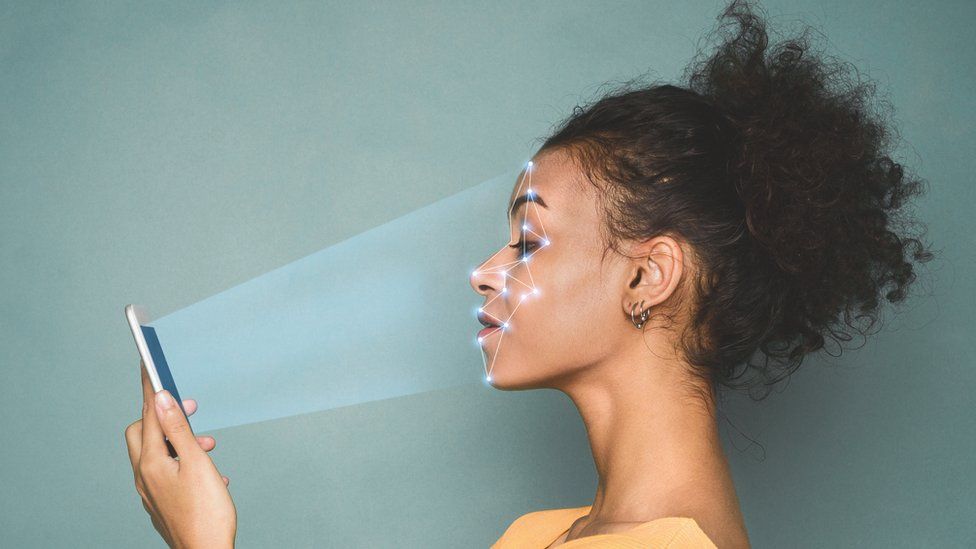Facial recognition to 'predict criminals' sparks row over AI bias
- Published

A US university's claim it can use facial recognition to "predict criminality" has renewed debate over racial bias in technology.
Harrisburg University researchers said their software "can predict if someone is a criminal, based solely on a picture of their face".
The software "is intended to help law enforcement prevent crime", it said.
But 1,700 academics have signed an open letter demanding the research remains unpublished.
One Harrisburg research member, a former police officer, wrote: "Identifying the criminality of [a] person from their facial image will enable a significant advantage for law-enforcement agencies and other intelligence agencies to prevent crime from occurring."
The researchers claimed their software operates "with no racial bias".
But the organisers of the open letter, the Coalition for Critical Technology, said: "Such claims are based on unsound scientific premises, research, and methods, which numerous studies spanning our respective disciplines have debunked over the years.
"These discredited claims continue to resurface."
The group points to "countless studies" suggesting people belonging to some ethnic minorities are treated more harshly in the criminal justice system, distorting the data on what a criminal supposedly "looks like".
University of Cambridge computer-science researcher Krittika D'Silva, commenting on the controversy, said: "It is irresponsible for anyone to think they can predict criminality based solely on a picture of a person's face.
"The implications of this are that crime 'prediction' software can do serious harm - and it is important that researchers and policymakers take these issues seriously.
"Numerous studies have shown that machine-learning algorithms, in particular face-recognition software, have racial, gendered, and age biases," she said, such as a 2019 study indicating facial-recognition works poorly on women and older and black or Asian people.
In the past week, one example of such a flaw went viral online, when an AI upscaler that "depixels" faces turned former US President Barack Obama white in the process.
Allow Twitter content?
This article contains content provided by Twitter. We ask for your permission before anything is loaded, as they may be using cookies and other technologies. You may want to read Twitter’s cookie policy, external and privacy policy, external before accepting. To view this content choose ‘accept and continue’.
The upscaler itself simply invents new faces based on an initial pixelated photo - not really aiming for a true recreation of the real person.
But the team behind the project, Pulse, have since amended their paper to say it may "illuminate some biases" in one of the tools they use to generate the faces.
The New York Times has also this week reported on the case of a black man who became the first known case of wrongful arrest based on a false facial recognition algorithm match.
In the Harrisburg case, the university had said the research would appear in a book published by Springer Nature, whose titles include the well regarded academic journal Nature.
Springer, however, said the paper was "at no time" accepted for publication. Instead, it was submitted to a conference which Springer will publish the proceedings of - and had been rejected by the time the open letter was issued.
"[It] went through a thorough peer review process. The series editor's decision to reject the final paper was made on Tuesday 16 June and was officially communicated to the authors on Monday 22 June," the company said in a statement.
Harrisburg University, meanwhile, took down its own press release "at the request of the faculty involved".
And while it supported academic freedom, research from its staff "does not necessarily reflect the views and goals of this university".
The Coalition for Critical Technology organisers, meanwhile, have demanded "all publishers must refrain from publishing similar studies in the future".
- Published20 December 2019
- Published13 May 2019
- Published9 June 2020
- Published9 October 2019
- Published11 June 2020
- Published4 February 2019
- Published8 July 2019